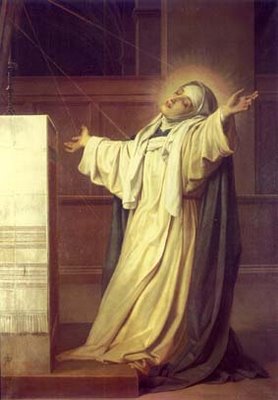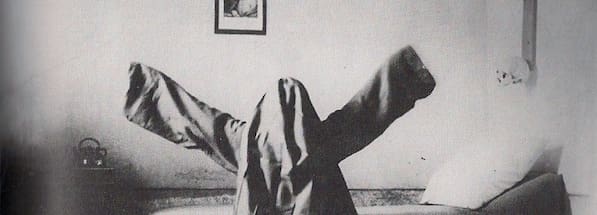 The will of God gives a supernatural and divine value to everything for the soul submitted to it. All the duties His will imposes, all those contained in it, all the matters it touches, become holy and perfect, because the will of God is unlimited in power and it makes everything it touches divine.
The will of God gives a supernatural and divine value to everything for the soul submitted to it. All the duties His will imposes, all those contained in it, all the matters it touches, become holy and perfect, because the will of God is unlimited in power and it makes everything it touches divine.
But in order not to stray either to the right or the left, we should follow such inspirations we believe we have received from God only if we are sure that they will not take us from the duties of our state of life. These duties are the most certain manifestations of God’s will, and nothing should be preferred above them; in them there is nothing to fear, nothing to exclude, nothing to be chosen. The moments given to such duties are the most precious and most healthful for our souls because we are sure of accomplishing God’s holy will. The entire virtue of what we call holiness lies in faithfulness to what God ordains. Therefore we must refuse nothing, seek after nothing, but accept everything that is ordained from Him.
Books and wise counsels, vocal prayer and inward affections, when they are in accord with His will, instruct, guide and unite us with Him. In condemning the use of these means and everything that pertains to the senses, quietism erred greatly, for there are souls that God intends to keep always in this way. Their state of life and their leadings show this clearly enough. It is foolish to picture any kind of self-surrender in which all personal activity is excluded. When God requires action, holiness is to be found in activity.
Besides the duties imposed on everyone by the circumstances of their life, God may require certain actions which are not included in these duties, though not in any way contrary to such duties. A leading and inspiration are then the sings of God’s approval. Those who are led by God in this way will find a greater perfection by adding the things inspired to those that are commanded, taking the necessary precautions to make sure that these inspirations do not interfere with the duties of one’s state and the happenstances of Providence.
God makes saints as He chooses. They are always made according to His plan and in conformity to His will. This conformity is the truest and most perfect surrender of self.
The duties of ones state of life and what comes from divine Providence are common to all the saints and are what God arranges for everyone in general. The saints live hidden from the world, for the world is so fatal to holiness that they would avoid its quicksands. But their holiness does not consist in this. Rather, it is in their surrender to the will of God. The more absolute this surrender becomes, the greater their holiness. We must not look at those whose inner leadings and inspirations are unquestionably valid, and whose virtues are shown in unusual and extraordinary ways, and then conclude that these extraordinary gifts exempt them from self-surrender. As soon as God’s will makes duties of these astonishing actions, if they were to refuse to do them simply to fulfill their ordinary duties or the usual inspirations of Providence, the would be resisting God. In that case His holy will would no longer be in charge of the moment, and it would mean they had ceased to practice self-surrender. They must consider their duties in keeping with the designs of God, and follow the path designated by their particular leadings. To carry out their inspirations would then become a duty to which they must be faithful. And just as there are souls whose whole duty is defined by outward laws, and who should not go beyond it, because God’s will has so ordained, so there are others who, in addition to exterior duties are obliged to be faithful to the inward law imprinted on their hearts. Each person must follow the path appointed for him. Perfection consists in complete surrender to the will of God, and in fulfilling one’s normal duties in the most perfect manner possible.
But which state is most perfect? A vain and idle question! To compare the different states as they are in themselves can be of no help to us, since perfection is not found in the amount of work nor in the sort of duties given to us. If self-love is the motive of our action, or if it is not immediately crushed when discovered, our supposed abundance of good works will be in truth absolute poverty because it is not coming from God’s will.
To give some answer to the question, however, I think that holiness can be measured by the love one has for God and the desire to please Him. The more His will is the guiding principle, and His plans are conformed to and loved, the greater will be the holiness, no matter what means are used. This is what we notice in Jesus, Mary, and Joseph. In their separate lives there is more of love than of greatness, more of the spirit than of matter. It is not written that they sought holiness of circumstances, but rather holiness in all their circumstances. It must therefore be concluded that one way is not more perfect than another, but that the most perfect way is that which most closely conforms to God’s revealed will, whether it means exterior duties or inward attitudes.
Father Jean-Pierre de Caussade – The Joy of Full Surrender
To purchase Father Caussade’s book, click HERE.




